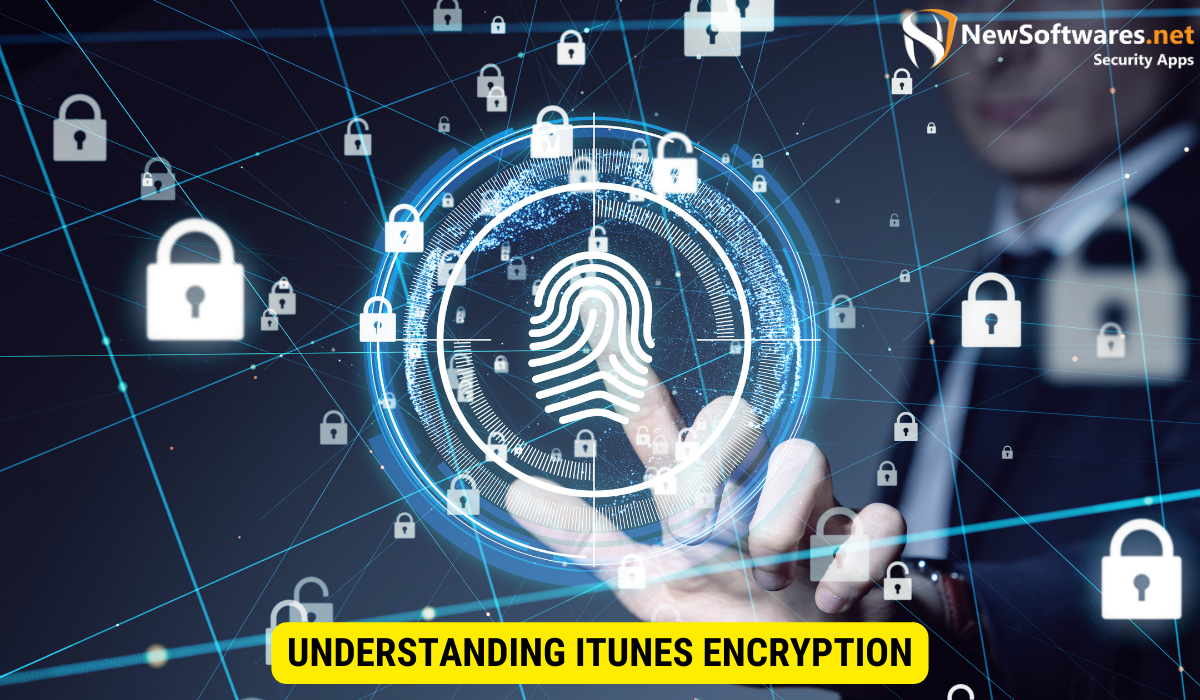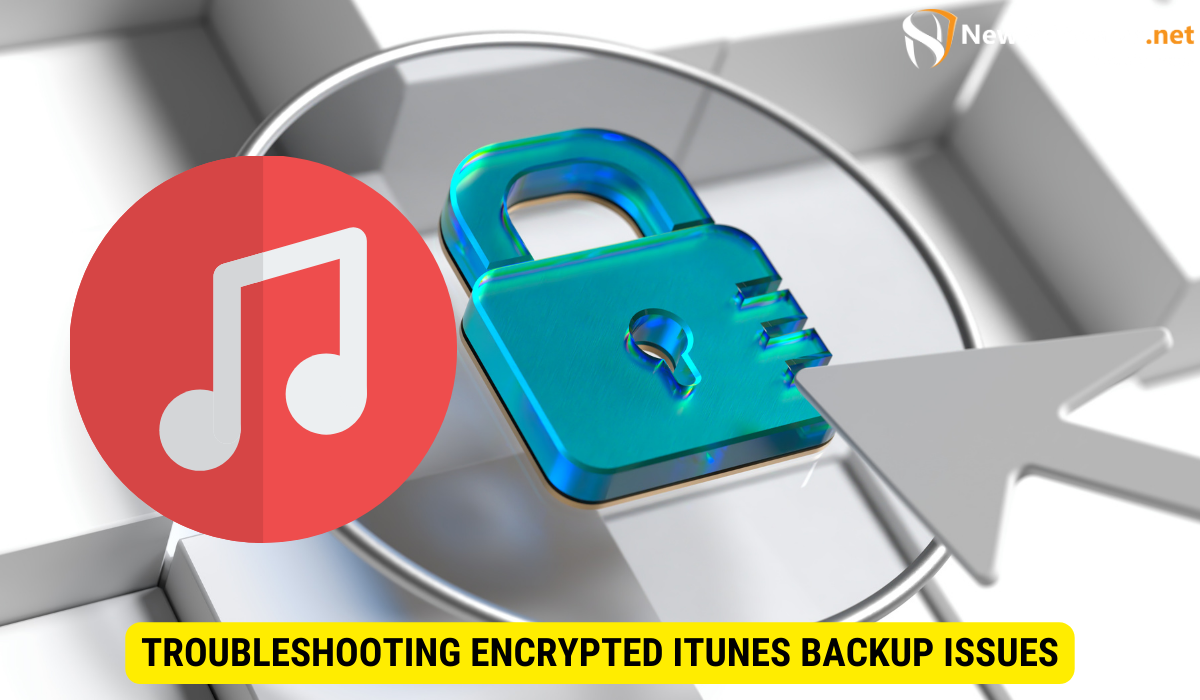Yes, encrypted iTunes backups preserve app data securely.
In this digital age, where our smartphones contain sensitive information, protecting our data from potential threats has become crucial. One way to ensure the safety of your data is by using encrypted iTunes backups. But what exactly is iTunes encryption, and how does it affect the saving of app data? Let’s explore the ins and outs of iTunes encryption and its impact on app data backup.
Understanding iTunes Encryption
What is iTunes Encryption?
iTunes encryption is a security feature provided by Apple that allows users to protect their backups with an added layer of encryption. When an iTunes backup is encrypted, it ensures that your data can only be accessed by authorized individuals with the encryption password.
Importance of Encryption in iTunes Backup
Encrypting your iTunes backup is essential to safeguard sensitive data from unauthorized access. It prevents potential hackers or someone with physical access to your computer from viewing your personal information and app data. Encryption guarantees your data remains private and secure, giving you peace of mind.
When protecting your data, encryption plays a crucial role in maintaining confidentiality. With increasing cyber threats and data breaches, taking proactive measures to secure your information is more critical than ever.
Encrypting your iTunes backup adds an extra layer of protection to your data. This means that even if someone can access your computer or backup files, they won’t be able to decipher the information without the encryption password.
Furthermore, encryption in iTunes backup not only protects your personal information but also safeguards your app data. This includes your saved passwords, app settings, and other sensitive information stored within your apps. Without encryption, unauthorized individuals could easily access and misuse this data.
Another advantage of iTunes encryption is that it allows you to securely transfer your backup files to other devices or cloud storage services. Whether migrating to a new iPhone or storing your backups on iCloud, encryption ensures your data remains secure.
It is worth noting that encryption does not affect the usability of your iTunes backups. You can still restore your data and settings to your iOS device without any issues. The only difference is that the data remains encrypted until decrypted using the correct password.
Apple takes encryption seriously and has implemented robust security measures to confirm the integrity of your data. The encryption algorithm used in iTunes backup is highly secure and virtually impossible to crack without the encryption password.
In conclusion, iTunes encryption is a vital security feature that guards sensitive data from unauthorized access. By encrypting your backups, you can rest assured that your personal information and app data remain private and secure. Take advantage of this feature to enhance the security of your iOS devices and enjoy peace of mind knowing that your data is protected.
The Scope of iTunes Backup
When backing up your iOS devices, iTunes offers a wide range of data protection. With iTunes backup, you can rest assured that your valuable information is securely stored and easily recoverable. Let’s take a closer look at what exactly iTunes backup includes.
What Data Does iTunes Backup Include?
iTunes backup goes beyond just the bare essentials. It encompasses a comprehensive range of data, ensuring a complete device backup. From app data to device settings, contacts to messages, photos to videos, iTunes backup has covered you.
Imagine you have important documents stored in various apps on your iPhone or iPad. With iTunes backup, you won’t have to worry about losing them. The backup includes the data from these apps, ensuring you can quickly restore it if needed.
Furthermore, iTunes backup even extends its reach to other crucial information. It includes your Safari bookmarks, calendar events, notes, and call history. This means that even if you accidentally delete a bookmark or lose track of an important event, you can easily retrieve it from your iTunes backup.
By default, iTunes is designed to back up almost everything on your device. This comprehensive approach ensures you have a complete snapshot of your iOS device, ready to be restored whenever necessary.
Limitations of iTunes Backup
While iTunes backup offers extensive data protection, it’s important to be aware of its limitations. Understanding these limits will help you make conversant decisions about your backup strategy.
Firstly, iTunes does not back up media that you can re-download from the App Store or iTunes Store. This comprises music, movies, TV shows, and apps. The reasoning behind this is to save storage space on your computer and reduce the time it takes to create a backup. However, fear not! You can always re-download these items from the respective stores without any hassle.
Additionally, it’s worth noting that some data stored within apps may not be included in the backup. Including such data depends on the app’s configuration and data storage method. For example, certain apps may store data in the cloud or have their own backup mechanisms in place. The data may not be included in the iTunes backup in these cases. Therefore, checking the app’s settings or documentation is always a good idea to understand how your data is handled.
Despite these limitations, iTunes backup remains a powerful tool for safeguarding your iOS device’s data. It provides a comprehensive backup solution, encompassing a wide range of information. Whether you need to restore your device after an accidental deletion or a wrong software update, iTunes backup ensures that your data is never lost.
The Role of Encryption in Saving App Data
With the increasing dependance on mobile devices and the vast amount of personal information stored on them, the need for data security has become paramount. Encryption is crucial in safeguarding app data, ensuring it remains private and protected from unauthorized access.
How Encryption Works in iTunes Backup
When you enable encryption for an iTunes backup, all the backed-up data is encoded using a unique encryption key. This encryption key is the foundation of data security, acting as a digital lock that keeps your information safe. It is then further protected by a password you set, adding an extra layer of defense.
But how does this encryption process actually work? Let’s dive a little deeper. When you initiate an iTunes backup, the software converts all the data from your device into a series of complex codes. These codes are generated using advanced algorithms that scramble the information, making it unreadable to anyone without the encryption key.
Think of it as a secret language only those with the key can understand. This ensures that even if someone gains illegal access to your backup files, they won’t be able to decrypt and read the data without the encryption password.
The Effect of Encryption on App Data Backup
Now that we understand how encryption works in iTunes backup let’s explore its impact on app data backup. One might wonder if encryption has any negative effects on the backup process or if it compromises the integrity of the data. The answer is a resounding no.
Encryption, in fact, has a positive effect on app data backup. It preserves the integrity and security of your app data and ensures that only authorized individuals can access it. By encrypting your iTunes backup, you can rest assured that your app data is safe from prying eyes.
Imagine a scenario where you accidentally misplace your device, or it gets stolen. Without encryption, anyone who gets their hands on your backup files could access your personal information, including sensitive app data. However, encryption protects your data, and only those with the encryption password can unlock and access it.
Moreover, encryption also plays a crucial role in compliance with privacy regulations and industry standards. Many organizations and individuals must adhere to strict data protection guidelines, and encryption provides a reliable solution to meet these requirements.
In conclusion, encryption is an essential component of in-app data backup. It ensures your information’s confidentiality, integrity, and security, giving you peace of mind knowing that your data is safe from unauthorized access. So, the next time you enable encryption for your iTunes backup, remember its critical role in protecting your app data.
Steps to Encrypt iTunes Backup
Setting Up Encryption for iTunes Backup
Enabling encryption for your iTunes backup is a straightforward process. Simply connect your iOS device to your CPU, open iTunes, and select your device from the top left corner of the iTunes window. Under the “Summary” tab, tick the box labeled “Encrypt [device] backup” and set your desired password. Then, click the “Apply” key to start the encryption process.
Verifying the Encryption Status of Your Backup
To ensure that your backup is encrypted successfully, follow these steps: Open iTunes, go to “Edit” (Windows) or “iTunes” (macOS), select “Preferences,” and click on the “Devices” tab. Your encrypted backup should be listed here, indicating that your data is protected.
Troubleshooting Encrypted iTunes Backup Issues
Common Issues with Encrypted iTunes Backup
While encrypting iTunes backups is generally a smooth process, some users may encounter issues along the way. One common problem is forgetting the encryption password. If you forget the password, your encrypted backup becomes inaccessible. Another issue is the inability to sync or restore an encrypted backup on a different computer without entering the encryption password.
Solutions for Encrypted iTunes Backup Problems
If you forget your encryption password, there is no way to recover it. The only solution is to reset the password, which involves erasing your device and setting it up as new. To avoid such a situation, choose a strong and memorable encryption password. As for syncing or restoring on a different computer, remember to carry your encryption password.
Key Takeaways
1. iTunes Encryption: iTunes encryption is a crucial security feature that safeguards your data by allowing only authorized access with an encryption password.
2. Comprehensive Data Backup: iTunes backup includes a wide range of data, ensuring a complete device backup, including app data, settings, contacts, and more.
3. Encryption Benefits: Encryption in iTunes backup enhances app data security, protects against unauthorized access, and complies with data protection regulations.
4. Easy Encryption Setup: Enabling encryption for iTunes backup is a straightforward process, ensuring your data remains secure.
5. Troubleshooting: Be cautious not to forget your encryption password, and remember to carry it when syncing or restoring on a different computer to avoid issues.
In conclusion, encrypted iTunes backups are crucial in safeguarding your app data and personal information. By understanding iTunes encryption, realizing the scope of iTunes backup, and learning how to properly encrypt your backups, you can ensure that your sensitive data remains protected. Remember to keep your encryption password secure and accessible and troubleshoot any issues that may arise. With encrypted iTunes backups, you can enjoy the convenience of app data backup without compromising your privacy and security.


